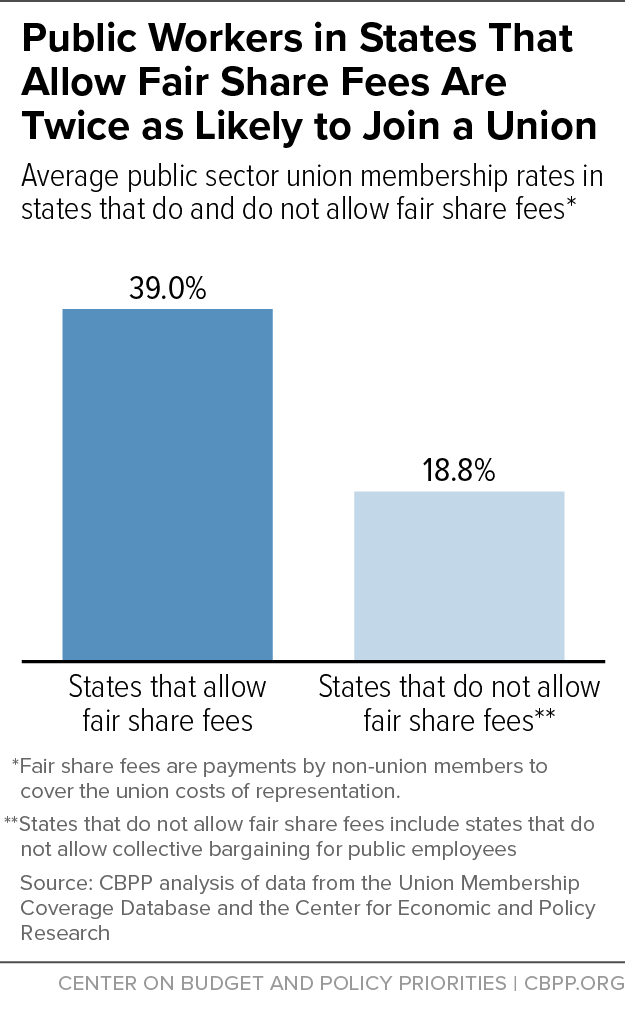BEYOND THE NUMBERS
The Supreme Court is considering whether public sector unions can require non-members to pay fees to cover certain union expenses and, if it decides they can’t, that likely will mean that such unions will lose members, hurting their ability to bargain collectively with employers. That, in turn, could worsen income inequality, which has been growing across the country and in individual states since the 1970s, as we’ve documented here and here.
The case, Janus v. American Federation of State, County, and Municipal Employees, concerns unions that represent state and local employees. The Supreme Court has long held that public employees can’t be required to join unions. Even if they don’t, however, they can be required to pay a “fair share” or “agency fee” to cover the expenses that unions incur in representing them.
Currently, individual states can choose whether to allow these fair share fees for public employees. Sixty percent of state and local employees work in the 19 states (and the District of Columbia) that allow them, while the other 40 percent work in the 31 states that outlawed them. That’s one reason why public sector unionization rates vary dramatically by state. Public workers in states that allow fair share fees are more than twice as likely to join a union (see chart).
Public employee unions’ ability to collect these fair share fees is at risk in the Janus case. The demise of these fees would curtail unions’ ability to bargain collectively with employers to raise low- and middle-income workers’ wages and, thus, would suppress wage gains and likely increase income inequality.
A range of studies (see here and here) have concluded that falling union membership has played a significant role in growing inequality. In addition, reduced unionization in the public sector would disproportionately affect women and people of color as states and local governments have historically provided more equitable opportunities for these workers. Black women make up the largest share of public sector workers (17.7 percent).
Federal and state policymakers can push back against these trends by enacting (and enforcing) stronger labor standards, reforming immigration policies to bring workers out of the shadows, promoting full employment, adopting state earned income tax credits, and, importantly, protecting workers’ rights to organize. Depending on the Supreme Court’s ruling in Janus, this task could soon become harder.

